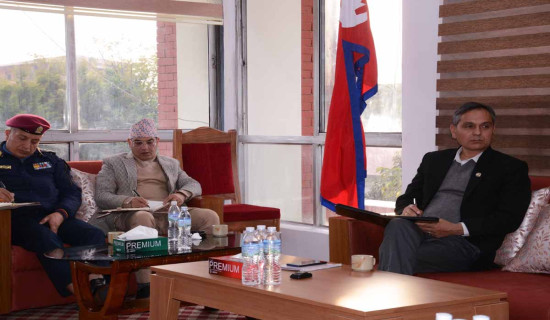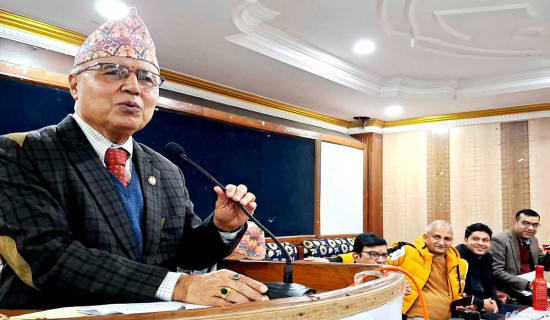- Monday, 8 December 2025
Bound To Migrate
At a time when families across the country come together to celebrate the festivals like Dashain, Tihar, and Chhath, sharing moments of togetherness and tradition, countless others are instead leaving their loved ones behind. As communities celebrate in the festive season, these individuals face long journeys to foreign lands in the hope of securing a future for their families. For many, separation from families is not a choice but a compulsion. Economic hardship and a lack of viable local opportunities are forcing them to fly abroad for jobs. This growing trend reflects troubling gaps in our government systems, where promises of self-reliance and rural development often fail to materialise.
In places like Jajarkot, economic pressures push many, especially young women, to pursue work opportunities overseas. Their stories are marked not by an eagerness to leave but by a lack of alternatives at home. These individuals wish to stay, contribute to their communities, and build a livelihood in their own villages. Yet, when local industries remain underdeveloped and small businesses receive little support, their dreams of economic independence are frequently stifled.
Consider the news story published in this daily about a young woman who took the step of starting her own business in Bheri Municipality. With her own savings, she set up a small shop in Khalanga, hoping to support herself and her family. But without assistance from local authorities or development agencies, her efforts hit a wall. Despite reaching out for help, she found her requests ignored. Ultimately, she was forced to abandon her business and migrate abroad, leaving behind her aspirations and a life she had hoped to build in her homeland.
Such stories echoed across rural Nepal, where people with ambition and skills find themselves hindered by a lack of meaningful institutional support. Programmes that promote rural entrepreneurship and self-sufficiency often fail to meet their stated goals, with the distribution of resources influenced by political connections and kinship ties. This selective allocation only worsens inequalities, sidelining the most vulnerable and leaving them with no choice but to seek work in foreign countries. Local authorities frequently speak of creating employment opportunities and supporting rural businesses. Yet there are few concrete programmes or financial backing to sustain these aspirations. The government needs to prioritise the grassroots programmes that reflect the actual needs of the local communities. Funds and resources must be distributed based on genuine needs and merit and not on favouritism.
Governments at all levels -- the local, provincial, and federal -- must reassess their priorities and develop initiatives that empower communities to grow and thrive. Small businesses need support through grants, technical training, and access to markets. Only by developing local economies can we hope to build a foundation for sustainable livelihoods, reducing the painful compulsion of seeking work abroad.
As we celebrate our festivals, it is worth reflecting on those who must spend this time separated from their families, enduring hardships abroad simply to provide support for their loved ones back home. A society that forces so many people to leave in search of work in foreign soil is a society in need of reform. By investing in its people and supporting local initiatives, the country can retain the talents and potential of its citizens, building a brighter future for all. This will not only strengthen the economy but will also ensure that, during future festivals, families can gather together and celebrate without the looming fear of separation.

















